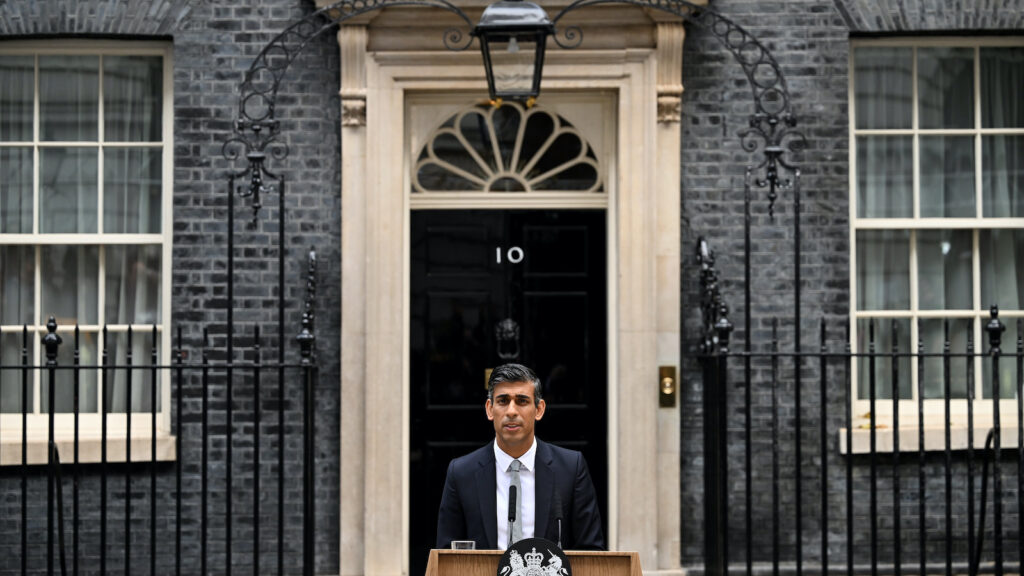BRINK’s Top 5 Economic Stories

Photo Illustration by BRINK
The global economy is lethargic, still struggling to shake off the after-effects of the 2008 global recession. Every time a major economy hiccups, world markets gyrate erratically before returning to an uneven bump and grind approaching stability.
Even the U.S. economy, which by all accounts has righted itself, seems cautious, as American companies are apparently hoarding cash at records levels.
The UK’s economy is teetering, suffering reverberations from July’s Brexit vote. Meanwhile, the European Central Bank is making investors wary by keeping results of its latest banking stress test shrouded in secrecy, raising questions as to whether many of the bloc’s medium-sized banks could withstand the shock of a deep recession.
Against that backdrop, here are the top 5 economic stories that have most captured the attention of BRINK readers.
Best, Worst Countries for Business in Two Charts
Based on the World Bank’s 2015 Doing Business report, the two charts displayed in this piece reveal the best and worst regulatory environments for businesses across 189 countries. The report examined areas of regulation related to the availability of electricity, enforcing contracts, paying taxes and cross-border trade.
Singapore, according to the report, is the best country in the world to do business; New Zealand and Denmark round out the top three. How does your country compare?
Greece—Game Over?
Before and after the UK’s historic Brexit vote, talk of a potential “Grexit”—that is, a Greek departure from the European Union—ebbed and flowed. Brexit hasn’t precipitated a multi-state exeunt from the European Union—but Greece’s economic woes are far from over.
“Economic activity in Greece has already been badly damaged by arrears and a loss in confidence,” writes Robert Kahn, Senior Fellow for International Economics at the Council on Foreign Relations. The pressure is on for leaders in Greece to address the country’s underlying economic fragility. If officials fail to do so, Kahn warns, a future Grexit remains in the realm of possibility.
India Has False Sense of Security Amidst Global Financial Crisis
India’s Finance Minister and Reserve Bank Governor have been quick to downplay any risk the country might face from the ongoing global growth crisis. Others claim that recent global economic turmoil—such as the rock-bottom price of oil—could be an advantage for India’s economy.
Ashoka Mody, professor of International Economic Policy at Princeton University’s Woodrow Wilson School, isn’t buying it.
“Without a robust global presence, no nation can grow,” Mody writes, suggesting that India’s non-competitive position on the global stage leaves it particularly vulnerable. “If the global turmoil continues, the Indian stock market will continue to fall.”
The global financial crisis started in the U.S. in 2007 and crept into China. India, Mody warns, could be next in the economic crosshairs.
Innovation Thrives if Investors Aren’t Companies’ Only Concern
“For firms to survive and thrive, innovation is crucial,” writes Aleksandra Kacperczyk, Professor of Entrepreneurship at Massachusetts Institute of Technology.
Innovative companies are more adept at navigating dynamic business landscapes, and they’re better at anticipating and addressing risks. In order to foster innovation, Kacperczyk argues, companies must “shift the orientation of corporate directors to include the interests of non-financial stakeholders.”
This shift doesn’t have to come at the cost of a company’s bottom line. On the contrary, when business leaders consider the interests of stakeholders other than shareholders, “their companies become more innovative and eventually more profitable,” Kacperczyk writes.
UK Ousts Itself from EU with ‘Brexit’ Vote
When the Brexit referendum was announced in early 2016, few experts and political analysts paid it any heed. Many viewed the vote as symbolic—an exercise to once-and-for-all put the notion of Britain leaving the EU to rest.
So when the ‘leave campaign’ edged out a 4-point victory to secure Britain’s departure from the EU, uncertainty cast a long shadow over the UK.
“Uncertainty will rule in the short term,” the article contends. “[E]very aspect of British society [will look] to secure its newfound footing, not only in the European bloc, but on the global stage as well.”
The British pound dropped precipitously following the vote. S&P warned that Britain could lose its AAA rating. International markets suffered significant losses. All of this happened before any details of Britain’s departure have been hammered out, which could take another two or more years at the rate things are—or aren’t—progressing.



